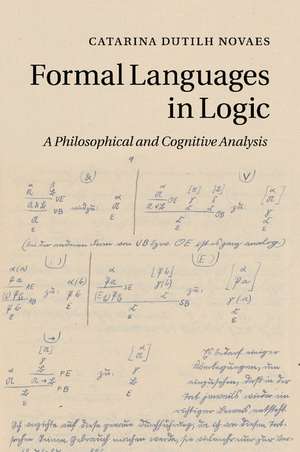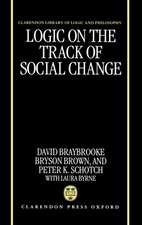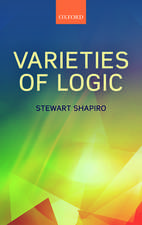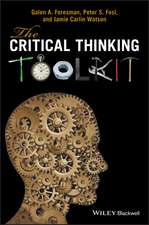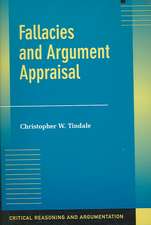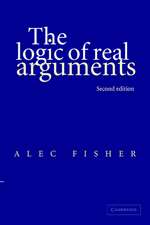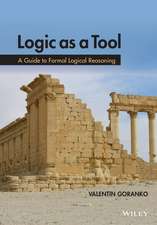Formal Languages in Logic: A Philosophical and Cognitive Analysis
Autor Catarina Dutilh Novaesen Limba Engleză Paperback – 5 noi 2014
| Toate formatele și edițiile | Preț | Express |
|---|---|---|
| Paperback (1) | 284.78 lei 6-8 săpt. | |
| Cambridge University Press – 5 noi 2014 | 284.78 lei 6-8 săpt. | |
| Hardback (1) | 695.06 lei 6-8 săpt. | |
| Cambridge University Press – 7 noi 2012 | 695.06 lei 6-8 săpt. |
Preț: 284.78 lei
Nou
Puncte Express: 427
Preț estimativ în valută:
54.49€ • 56.89$ • 45.10£
54.49€ • 56.89$ • 45.10£
Carte tipărită la comandă
Livrare economică 05-19 aprilie
Preluare comenzi: 021 569.72.76
Specificații
ISBN-13: 9781107460317
ISBN-10: 110746031X
Pagini: 284
Ilustrații: 4 b/w illus. 4 tables
Dimensiuni: 152 x 229 x 15 mm
Greutate: 0.38 kg
Editura: Cambridge University Press
Colecția Cambridge University Press
Locul publicării:New York, United States
ISBN-10: 110746031X
Pagini: 284
Ilustrații: 4 b/w illus. 4 tables
Dimensiuni: 152 x 229 x 15 mm
Greutate: 0.38 kg
Editura: Cambridge University Press
Colecția Cambridge University Press
Locul publicării:New York, United States
Cuprins
Introduction; 1. Two notions of formality; 2. On the very notion of a formal language; 3. The history, purposes and limitations of formal languages; 4. How we do reason, and the need for counterbalance in science; 5. Formal languages and extended cognition; 6. De-semantification; 7. The debiasing effect of formalization; Conclusion.
Recenzii
'Since the rise of logical empiricism, formal languages have become essential tools of doing philosophy. But why does formalization work? And what are its limitations? This book fills a crucial gap in the literature by addressing these questions from a cognitive, historical, and logical point of view. I recommend it to formal philosophers, critics of formal philosophy, and everyone with an interest in the techniques of conceptual engineering per se.' Hannes Leitgeb, Ludwig Maximilians Universität Munich
Notă biografică
Descriere
Examines the cognitive impact on formal languages for human reasoning, drawing on philosophy, historical development, psychology and cognitive science.
